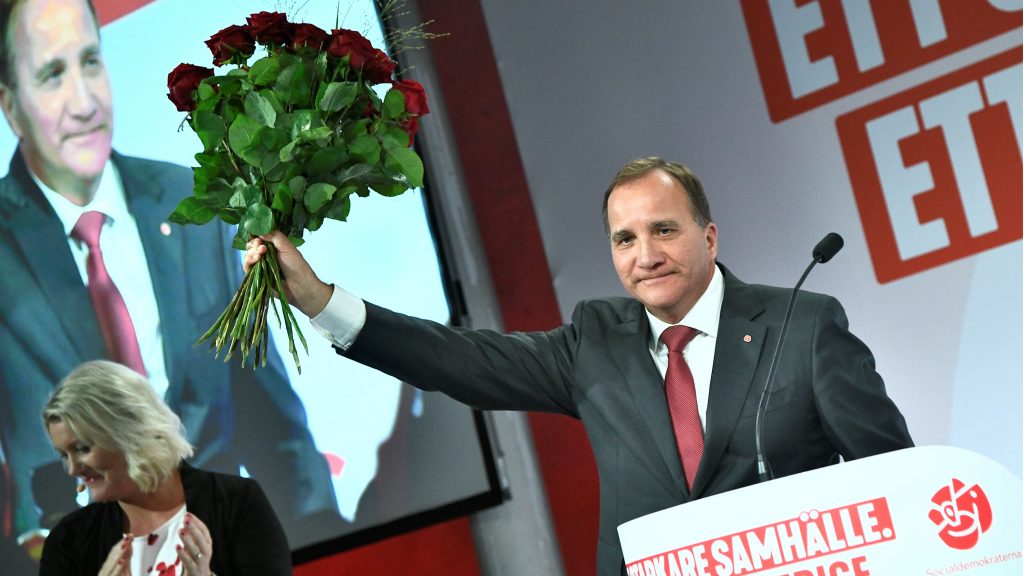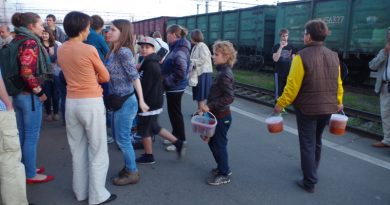Sweden headed for coalition government after narrow election results

Sweden’s Social Democrat Prime Minister Stefan Löfven is not stepping down – but he faces a vote to stay in power that he seems likely to lose, unless he can convince some of the opposition to support him.
In his post-election speech he said: “No side has won a majority and so it is natural that it is cross-bloc cooperation that will allow Sweden to be ruled.”
There will be a vote of confidence in the prime minister by 8th October at the latest, and Löfven has to avoid a majority against him. This is certain to happen, however, if the centre-right fulfil their promise to vote him down, as the Sweden Democrats are likely to do the same and thereby have a majority in the Riksdag.
Radio Sweden’s quick post-election analysis with Loukas Christodoulou.
To form a majority government, a coalition would need 175 members, which seems to be out of the question given Sunday night’s preliminary results. In order to move forward with a minority government, one of the two blocs will need to garner support from their political opposition if they hope to govern Sweden for the upcoming four years.
Related stories from around the North:
Canada: Opposition party adopts resolution to give Canada’s North 100% of northern resource royalties, CBC News
Finland: Climate change and youth loneliness top priorities for President Niinistö’s second term, Yle News
Norway: Northern Norway merger overwhelmingly rejected in regional referendum, The Independent Barents Observer
Russia: What does Putin’s re-election mean for Russia’s Arctic policy?, The Independent Barents Observer
Sweden: Analysis – How do Sweden’s political parties plan to tackle climate change?, Radio Sweden



